
Outside Inside is the sixth studio album by the Tubes, released in 1983 on Capitol Records. The album peaked at No. 18 on the US Billboard 200.

Relics is a 1971 compilation album by English progressive rock band Pink Floyd. The album was released in the UK on 14 May 1971 and in the United States on the following day. Initially released by Starline, the compilation was reissued by Music for Pleasure in the United Kingdom, while Harvest and Capitol distributed the album in the United States. A remastered CD was released in 1996 with a different album cover, picturing a three-dimensional model based on the sketch drawn by drummer Nick Mason for the album's initial release.

Spirit was an American rock band founded in 1967 and based in Los Angeles. Their most commercially successful single in the United States was "I Got a Line on You". They were also known for their albums, including their self-titled debut album, The Family That Plays Together, Clear, and Twelve Dreams of Dr. Sardonicus.

Secret Treaties is the third studio album by American rock band Blue Öyster Cult, released on April 5, 1974 by Columbia. It features the same band members and production team as their previous album.

American Woman is the sixth studio album by Canadian rock band the Guess Who, released in January 1970. It was the last to feature lead guitarist Randy Bachman until a reformation effort in 1983. The album was one of their most successful releases, receiving Gold certification in the United States.

Audio-Visions is the seventh studio album by American progressive rock band Kansas, released in 1980. The album was reissued in remastered format on CD in 1996 on Legacy/Epic and again in 2011, as a Japanese import vinyl-replica CD, as well as part of the Sony/Legacy domestic boxed set, Kansas Complete Album Collection 1974-1983, which packages all of the band's original releases on Kirshner and affiliated labels CBS/Columbia.

Twelve Dreams of Dr. Sardonicus is the fourth album by the American rock band Spirit. It was produced by David Briggs, who is best known for his work with Neil Young. The original LP was released in November 1970 by Epic. The band's lowest charting album to that point, it peaked at #63 on the Billboard 200 in February 1971, spending only fourteen weeks on the chart. However, it sold well as a catalog item and became the band's only album to ultimately attain a RIAA gold certification in the U.S., achieving that status in 1976. On the Canadian RPM Magazine Top 100 charts, the album reached #49 and was in the top 100 for 10 weeks.
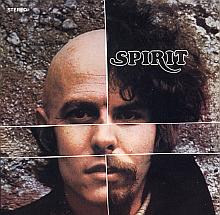
Spirit is the debut studio album by American rock band Spirit, released on January 22, 1968 by Ode Records. The album was commercially successful, spending more than six months on the Billboard album charts, peaking at #31. It was voted number 658 in Colin Larkin's All Time Top 1000 Albums 3rd Edition (2000).
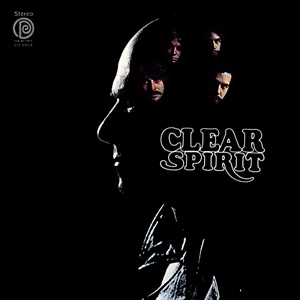
Clear is the third studio album by American rock band Spirit. It was released in August 1969 by Ode Records.
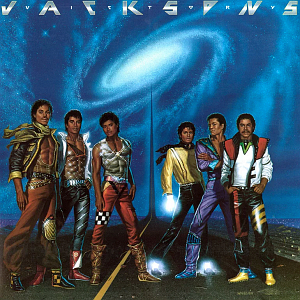
Victory is the fifteenth studio album by the Jacksons, released by Epic Records on July 2, 1984. The only album to include all six Jackson brothers together as an official group, Victory peaked at number four on the US Billboard 200 albums chart. Its most successful single, "State of Shock", peaked at number three on the US Billboard Hot 100 songs chart.
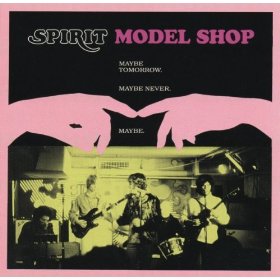
Model Shop is a 2005 album by the Los Angeles group, Spirit, which collects the material they recorded in 1968, for the soundtrack to Jacques Demy's film Model Shop. Chronologically, the album's material falls in between their second and third albums, The Family That Plays Together (1968) and Clear (1969) respectively.

Free-for-All is the second studio album by American rock musician Ted Nugent. It was released in September 1976 by Epic Records, and was his first album to go platinum.

Share the Land is the seventh studio album by Canadian rock band The Guess Who, released in October 1970. It was their first album following the departure of Randy Bachman, and the band brought in two new guitarists, Kurt Winter and Greg Leskiw. The album was another international success for the band, reaching number seven in Canada and number fourteen in the US, and spawned three hit singles in the title track, "Hand Me Down World" and "Hang On to Your Life".

Wheatfield Soul is the fourth studio album by the Canadian rock band the Guess Who, released in March 1969. Their first RCA Records release, the album is also notable for being the first full-length Guess Who album to feature Burton Cummings exclusively on lead vocals, without original lead singer Chad Allan. Featuring the US top 10 hit "These Eyes", it marked the beginning of the band's international success.

Artificial Paradise is the tenth studio album by the Canadian rock band The Guess Who. It was released by RCA Records in 1973. This was the first album by the group to feature bassist Bill Wallace.

Kapt. Kopter and the (Fabulous) Twirly Birds is a 1972 studio album by Randy California.
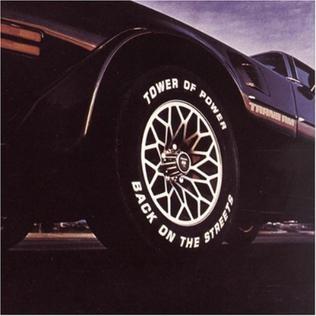
Back on the Streets is an album by the American band Tower of Power, released in 1979. It was their last album with Columbia Records. The title derives from the song "Back on the Streets Again" from their debut album East Bay Grease. David Garibaldi returns to the drummer's spot a third time, only to leave after this album, again. It also marked the debut of bassist Vito San Filippo and guitarist Danny Hoefer. This would be Hoefer's only album as a member of Tower of Power.

Fun in Acapulco is the seventh soundtrack album by American singer and musician Elvis Presley, released on RCA Victor Records in mono and stereo, LPM/LSP 2756, in November 1963. It is the soundtrack to the 1963 film of the same name starring Presley. Recording sessions took place at Radio Recorders in Hollywood on January 22 and 23 and February 27, 1963; and at RCA Studio B in Nashville, Tennessee, on May 26 and 28, 1963. It peaked at number three on the Billboard Top Pop Albums chart.

The Best of The Guess Who is the fourth compilation album by the Canadian group The Guess Who. It was originally released by RCA Records in April 1971 and contains recordings made between 1968 and 1970. The album reached number 12 on the Billboard top LPs chart in the United States.

Songs for Hip Lovers is a 1957 vocal album by the jazz bandleader Woody Herman, arranged by Marty Paich.




















